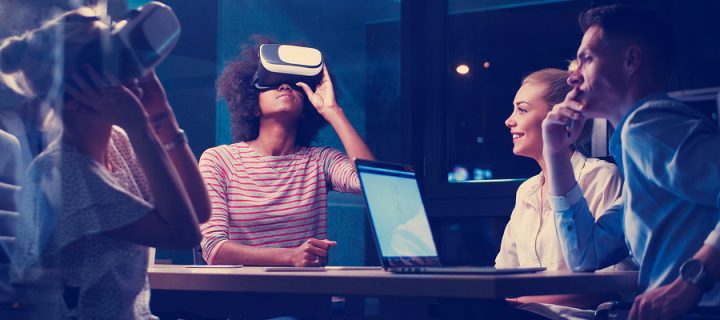Tired of learning from 2 dimensional screens and books? The future is your friend.
Researchers from the University of Maryland have discovered something about being immersed in a lot of technology.
In one of the first in-depth analyses to compare learning through VR with learning from traditional platforms like a two-dimensional desktop computer or hand-held tablet, researchers found that some people remember information better if it is presented to them in a virtual environment.
“This data is exciting in that it suggests that immersive environments could offer new pathways for improved outcomes in education and high-proficiency training,” says Amitabh Varshney, professor of computer science and dean of the College of Computer, Mathematical, and Natural Sciences at UMD.
Related: This Virtual Reality Game Detects Alzheimer’s
Here’s what happened. Participants were asked to try and recall an object placed in an imaginary VR location.
Two groups of people were shown famous faces. These included those of Abraham Lincoln, the Dalai Lama, Arnold Schwarzenegger and Marilyn Monroe.
The faces were then placed in a room in an ornate computer-generated palace and also within a digitally produced medieval town.
One group viewed the environment on a desktop screen with a mouse to navigate. Another was immersed in a virtual reality environment through a headset.
Interestingly, those in the VR environment scored better. 40 percent of participants scored at least 10 percent higher in recall when using VR over the desktop display.
“This leads to the possibility that a spatial virtual memory palace…could enhance learning and recall by leveraging a person’s overall sense of body position, movement and acceleration,” says Catherine Plaisant, a senior research scientist in the University of Maryland Institute for Advanced Computer Studies.
“By showing that virtual reality can help improve recall, it opens the door to further studies that look at the impact of VR-based training modules at all levels- from elementary school children learning astronomy to trauma residents acquiring the latest knowledge in lifesaving procedures,” Varshney added.
Researchers say they believe the future of education and innovation will benefit greatly from new visual technologies, and this is just the beginning.
Photo credits: shock/Bigstock.com












